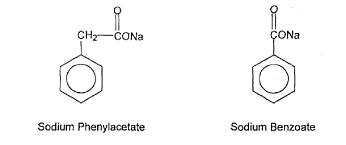Sodium Benzoate Prolongs Food Shelf Life and Reduces Human Life-Span
A highly dangerous compound, which has long been withdrawn in the production of rubber in the United States, is still being used as a common preservative in our foods and soft drinks today. The compound, sodium benzoate is a benzene compound that is produced by mixing benzoic acid with sodium hydroxide. According to the report on Youwealthrevolution, the consumption of this compound has been linked to a reduction of red blood cells. It has also been linked to a severe depression of the immune system, leukemia, various other blood cancers, and pre-cancerous blood conditions, including all of our major epidemics.
In its synthetic form, the compound is able to destroy parts of the DNA. It is known to precisely attack the mitochondria of DNA. Mitochondria are useful for controlling the cell life cycle and cell growth. They also use oxygen to produce energy. Changes in the DNA or overall genetic structure cause unpredictably random consequences on the affected organism. According to the report, sodium benzoate and DNA damage have already been linked with Parkinson’s disease, liver problems, and there is a possibility that research might still reveal further damaging consequences of this compound.
There is a likelihood that many diseases which have previously been dismissed as having ‘genetic' or spontaneous' could be caused by such poisonous compounds as sodium benzoate which has been proven to cause genetic mutations.
Worse still, anytime sodium benzoate mixeswith vitamin C, it forms pure benzene, which is highly dangerous for the human body. It is therefore astonishing, that chemical compounds this dangerous, are still being made available for consumption. What is the FDA doing about this, you may ask? According to Richard Wiles, Environmental Working Group’s senior vice president, “Once again, the FDA has sided with big food companies and misled consumers about the problem of benzene in beverages, withholding data and issuing public reassurances that are contradicted by their own test results.”
Sodium benzoate was banned from the rubber making industry in the United States due to the fact that many workers exposed to it developed leukemia and died. Several European countries have put pressure on the food industry to voluntarily remove sodium benzoate from products. Several European media outlets have called for an absolute ban on this toxic preservative due to concerns about children’s developmental safety. In 2007, a man got a High Court in Nigeria, to order the country’s National Agency for Food and Drug Administration and Control (NAFDAC) to make the Nigerian Bottling Company (NBC) Plc to put a written warning on Fanta and Sprite bottles stating that both soft drinks are poisonous when consumed along with Vitamin C.
The court also held that NAFDAC failed on its duty to Nigerians by declaring, as fit for human consumption, products discovered by tests in the United Kingdom as turning poisonous when mixed with Vitamin C.
However, in other countries such as the United States, the Food agencies and even the mass media remain strangely silent of this issue, leaving this dangerous compound on food shelves. It, therefore, falls on consumers to protect themselves.
Comments
There are 0 comments on this post













